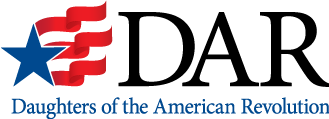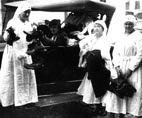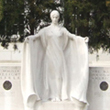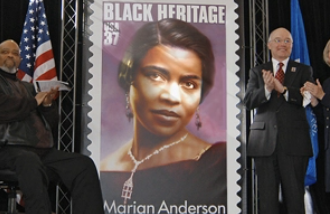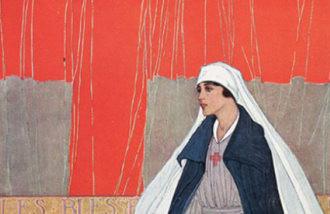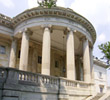When preparing for your trip to the DAR Library, please remember to plan ahead. Utilizing the available Library catalog and research guides can help you identify the collections and sources that are of the most interest to you so that you can make the best use of your time in the Library. If you are planning a research trip for a group of 5 or more, please refer to our Group Visit page for additional information.
View a map of the Library layout here
Hours of Operation
The DAR Library is open six days a week.
Monday-Friday: 8:30 a.m. – 4:00 p.m.
Saturday: 9:00 a.m. – 5:00 p.m.
Sunday: closed
The DAR Library is closed on all federal holidays. Additional closures may also occur around the Thanksgiving and Christmas holidays.
During the week of the DAR Continental Congress, the DAR Library is closed to the public. Only members registered for Continental Congress can access the Library during that week.
Due to the proximity of the DAR Library to the White House complex, there may be occasions when the DAR Library is unexpectedly closed or inaccessible due to security restrictions.
General Information
All bags, briefcases, and purses are subject to search by the Library and/or security staff for the protection of our collections. While in the DAR facilities, supervise your personal possessions. The NSDAR is not responsible for lost or stolen items.
The Library
The DAR Library acquires and preserves historical materials related to genealogical research (primarily focused on North America, especially the United States), and by acquiring and preserving records related to the American Revolutionary War period. The Library’s book collection exceeds 200,000 volumes, and approximately 3,000 new titles enter the Library each year.
The majority of the Library’s collection is housed in open stacks to allow browsing and easy retrieval of items. The stacks are located on two levels of the Library. If you need assistance locating a particular section or item, please ask a Library staff member or consult the Library floorplan located at the reference desk.
Please do not re-shelve any books. When you are finished with a book, place it on one of the library carts located along the center aisle.
Certain manuscript files, maps and other special collections must be retrieved from secured storage areas by Library staff members. These items are designated in the Library catalog. You can fill out a request slip for any of these items at the reference desk.
Please use caution when walking in the Library. Watch for step stools, chairs and book carts. Be careful when standing on a step stool or passing someone standing on one. Be mindful of other researchers when moving any of the compact shelving units. On crowded days, please do not occupy neighboring chairs with coats, bags, etc. and, when asked, move such materials for the convenience of other researchers.
In addition to books and manuscripts, the Library also has an extensive collection of microfilm and microfiche, which can be requested at the reference desk, . There are ScanPro readers for working with microfilm and microfiche available. Library patrons have the option of saving digital images or printing from a microfilm or microfiche for a fee of $0.50 per saved image or printed page.
On site Library patrons have image access to the Genealogical Research System (GRS). The GRS is a database that allows researchers to search for DAR verified patriots, view scanned copies of approved DAR membership applications, and scanned supporting documents that were submitted with those approved membership applications.
Researchers can also use the GRS to search and view the scanned Genealogical Records Committee Collection (GRCs). GRC reports contain transcribed records collected by the DAR chapters since the 1930s. There are nearly 20,000 GRC reports available, and the project is ongoing.
In addition to these proprietary collections, Library patrons can also access Library’s database subscriptions, which include American Ancestors (NEHGS), Ancestry Library Edition, Colonial America, Find My Past, Fold3.com, Early American Newspapers, Newspapers.com, and others.
Library patrons can print copies of approved DAR membership applications for $10.00 per application. There is a printing fee of $0.50 per page for supporting documentation, GRC pages, and onsite subscription database printouts.
Locating a Specific Book
The Library’s collection is arranged by call words (not by standard call numbers). The collection is divided into broad topics, and then arranged by subject. In order to locate a specific book, refer to the Library catalog to find the call words. Based on the specific collection identified in the first part of the call words, find the correct section of Library stacks. Most items are then arranged in alphabetical order based on remaining call words.
View a map of the Library layout here.
Seimes Technology Center
Seimes Technology Center is a teaching and learning space for research, meetings, training sessions, and group visits to the Library. It was established as the Betty Newkirk Seimes Microfilm Center in 1970 and named it for the then—President General. In April 1978, the 87th DAR Continental Congress made the Microfilm Center a National Committee. In 1997, Seimes was made a part of the Library, and in 2004 the Center’s name was changed to the “Seimes Technology Center” to better reflect the changing formats of materials available. Seimes is available for visiting groups, local chapter meetings, and so forth during regular business hours with advanced notice.
Copies and Reproductions
Photocopiers are located in the Library for public use. These photocopiers will accept coins, bills or copy-cards (that can be purchased at the reference desk). Photocopies cost $0.50 per page. The Reference Desk cannot give change for, or “break” bills for the copy machines. When others are waiting in line, patrons should limit themselves to no more than 25 copies at a time.
Digital cameras may be used to take pictures of book pages for a $20.00 fee (per day). If you wish to use your digital camera, please visit the Reference Desk to pay the fee and to complete the “Digital Camera Use Policy” form. Hand held personal photocopiers or scanners are not permitted in the library.
Research Guidance
The staff of the DAR Library are experienced with genealogical research, in general, and with the unique collections of the DAR Library, in particular. While these staff members can provide you with basic guidance and suggestions for your research, they cannot provide extensive one-on-one research consultations. The staff of the DAR Library are also unable to provide specific advice about DAR Applications or Supplemental Applications that are already under review by the Office of the Registrar General, nor are they permitted to prejudge the acceptability of documentation for any future submissions. Library staff may direct you to other DAR departments to answer certain questions as needed.
In order to make your Library visit as successful as possible, review our guide to planning for your research trip so you can identify the sources or collections that would be most helpful to you in your research.
